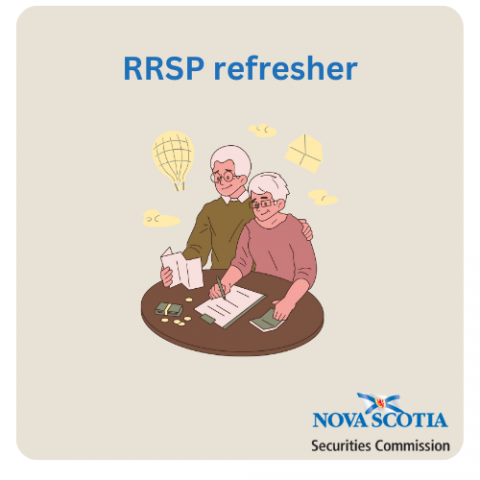Submitted by nsscadmin on

We’re nearing the end of January which likely means that a lot of Canadians are starting to think about their tax return. It also means a lot of Canadians are thinking about their Registered Retirement Savings Plan (RRSP). At tax time you may see several ads on TV, radio, online or in print reminding you that the RRSP contribution deadline is coming up. This year, with 2024 being a leap year, the contribution deadline is February 29. The way the RRSP deadline is communicated can be confusing for some investors because ads often leave out the word ‘contribution,’ and instead simply say go get some RRSPs.
To clear the air of confusion here are two simple things to remember when it comes to RRSPs.
- You cannot purchase RRSPs. They are not a tangible security or investment product you can buy.
- An RRSP is a type of registered financial account that can hold cash and investments.
Other than cash, what kinds of investment can you hold within in RRSP? Some of the more common investments that Canadians hold within their RRSP include guaranteed Investment certificates (GICs), stocks, bonds, mutual funds and exchange-traded funds.
There are a few benefits to holding your investments inside an RRSP. Two of these benefits include:
- Tax deferral of the contribution, and
- Tax-deferred growth.
When you contribute to your RRSP, the amount you contribute is deducted from your taxable income. The maximum your can contribute to an RRSP is 18 percent of your income up to a maximum of $30,780. This is rising to $31,560 in 2024. Here’s an example of how this works. Let’s say your taxable income is $50,000 and you make a $5,000 contribution to your RRSP. This will reduce your taxable income to $45,000. This means that you will owe taxes on a smaller amount.
Remember, like the deferred growth below, your contribution is a tax deferral as well. While you get the benefit of a tax deduction today, it will be taxed as income when withdrawn in the future from your RRSP.
Now let’s talk about tax deferred growth. Any investment income and growth accumulated by securities held in your RRSP is tax deferred. Instead of paying tax immediately on this growth it is deferred until you withdraw it from your RRSP account at retirement. Most people have a lower income at retirement which may result in less tax being paid on this deferred growth later in life.
The Nova Scotia Securities Commission does not provide investment advice. We are not advising or recommending the use of RRSP accounts. This post is simply to educate investors on RRSPs so they can be an informed investor when working with their adviser and making investment decisions.
